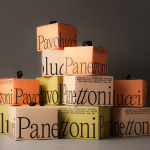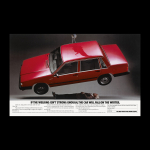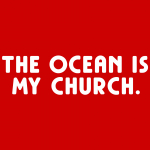
Mami Wata – Catching a break with West African folklore
Written by Seth Rowden Posted 23 August 2022
The year was 1952.
A surfer called Jack O’Neill opened a surf shop from his garage in California – and from nowhere, the first surf brand came into existence.
Like any new industry, there were few rules and plenty of breakthroughs. It wasn’t long before O’Neill produced the neoprene wetsuit and marketed it under the strapline, “It’s always summer on the inside”. Magnificent.
Within a decade, all of the big three surf labels were established. In 1969, Quiksilver and Rip Curl opened their doors in Australia. Then Billabong followed in 1973.
As the money flowed in, what was once a counterculture movement skipped over into the mainstream and became a multimillion-dollar industry.
By the late ‘90s, as you might be old enough to remember, these megabrands were just as likely to be seen in a high street department store as on the beaches of Southern California. I say this to underline how over-commercialism killed the industry and created the conditions for a brand like Miami Wata to catch a break.
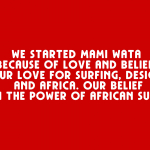
What makes Mami Wata notable is that they’re creating more than just a brand. This South African-based company promotes black surf culture and has created a whole new category within the industry: African surf. Best of all, they’re using West African folklore to build a striking verbal identity.
Even their name stands out.
Mami Wata literally translates as “Mother Water”. According to traditional seafaring tales, Mami Wata is a mermaid deity that lives in the ocean. She has the power to lure young men to their deaths – or take them to be her lover. Those who find favour with the sea goddess return to dry land better looking and with luck on their side.
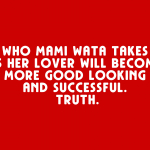
If you have five minutes, check out their brand film, Woza. It’s a masterpiece that was deservedly showered with awards at Cannes Lions festival.
Instead of young innocence and endless summers, Woza is like a fever breaking. It’s menacing, visceral, unnerving and strangely beautiful.
We’re dropped into a city at night, the dark ocean beyond. Kids hang out of car windows doing burnouts. There’s smoke, dance, the sound of urban chaos. A shark circles in the water. African percussion pulses in the background like a rising panic attack.
And all the while Mami Wata lures 22-year-old surfer Avuyile Ndamase further from shore, out into the deep.
I promise you, it’s totally different to any other kind of surf video you’ll have seen.

When it comes to the branding itself, there are two things that Mami Wata do extraordinarily well. The first is their product design. Instead of washed-out floral prints and ubiquitous wave patterns, we’re treated to strong geometric shapes and primary colours that feel unmistakably African. But the design wouldn’t have half the power without their use of brand language.
Remember, surf was a counterculture movement made up of misfits and adventurers. It wasn’t meant to be corporate or mainstream.
The use of West African folklore and local idioms feels unfamiliar and exciting – mirroring the early surfers who travelled in search of waves that have never been surfed, a piece of the map that hasn’t been settled.
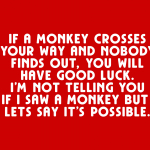
In a world where everything’s been shown in a Netflix documentary or posted on Instagram, even places we’ve never set foot can seem somewhat familiar. Incredible imagery is everywhere, but the same isn’t true for language.
That’s why the mention of monkeys crossing my path makes me smile. These expressions are so curious and playful, with an offbeat flow that’s conversational almost like poetry. I suppose they were once shared via spoken word rather than written down, which shows in the sentence structure.
Their launch newsletter was called “Them say them say”, which in four words reminds me of how news (or gossip) travels around a village. It’s a shame that most of these slogans are mostly limited to clothing, which wasn’t always the case.
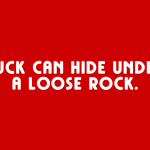
It’s not every day you see brands using regional language at the core of their brand – especially outside of the food and drinks industry, where it suggests provenance.
Nike came close with their Nothing Beats a Londoner campaign, which was later pulled after legal challenges. But the difference is, this is “place branding” rather than a voice that comes from the soul of Nike.
In the case of Mami Wata, they’ve found a verbal identity that’s unique to them. They teach us a lesson that goes beyond surf: look close to home for your brand voice, find stagnated industries that are ready for change, swim in the opposite direction to others.
I’ve long been a fan of Mami Wata and wish them luck, whether they find it under a loose rock or create it themselves one quirky sentence at a time.
Follow: Seth Rowden
